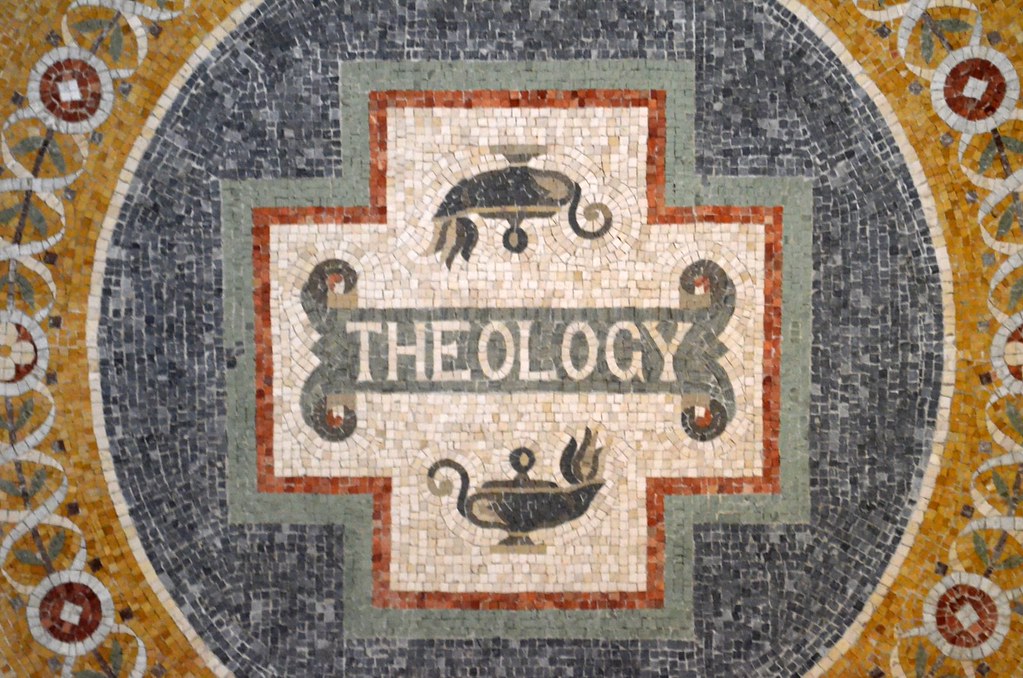THEOLOGY IN MODERN AGE
Summary:
We truly live in a remarkable age where the acceleration of its change has
been the fastest since the Roman invasion. Dubbed, appropriately, the
information age, most of us have witnessed the rise of the machines; the
dying embers of a cold war, a world record in longevity, the invention of
hydrogen bombs, discovery of quantum mechanics and, consequently, better standards of pretty much everything (including, sadly, mass-destruction). All of this is due to the study of the natural world, or science. Theology, the study of god, has repeatedly fallen on its arse when it came to improving our world and standard of living. Instead, it seems, theology seems to have achieved little apart from stifling innovation, opposing progress and paving the way to genocidal inquisitions.

Here, we study if there is any compatibility with theology and society in our
modern age, or if it should be resigned to the history books as a gruesome
lesson for humankind. For the sake of simplicity, most references to religion
or dogma will be made in context with the Christian flavour, since it is more
familiar to the likely audience.
EVOLUTION OF THEOLOGY
Theology, in recent times, has decreased consistently with the increase of
scientific study. This should come as little surprise since theology, since
it’s Greek origin, was without a doubt a quest for useful knowledge. In a
somewhat reasonable way, it was assumed that in order to know the Universe, the best place to start was to take a good look at its Creator.
However the Greeks, as we know, ultimately did away with their Gods
altogether. Few, if any, Greek scholars today believe that Apollo or Zeus
enjoy any power, or even existence.

Contrary to the Greek, however, it looks like Christians have some trouble
moving on. There seems to be an eerie doubt in their minds that maybe, just
maybe – one can only suppose, illness truly is demon possession. That perhaps, common sense is the ultimate test (or trick) imposed by a very stealthy god in a similar vein to the trick he supposedly pulled planting 60 million year old dinosaur bones in soil that can not possibly be more than 6,000 years old. Quite amazingly, theology remains a modern study the modern study of ancient texts that make up the Word of God yet this study doesn’t deign to bring further gains to society, or even to the scholars themselves save for a feeling of lukewarm piousness at the nobility of their quest. No, it appears that most scholarly efforts are spent finding
loop-holes to defend the bible’s supposedly divine author when its absurd
claims crumble under the slightest weight of scrutiny. Indeed, theology seems to be little more than an obsessive, deranged endeavour to justify a belief that simply fails to deliver anything remotely useful. From once being a study to further the common knowledge pool on matters that were simply
mystery (i.e. what are stars? Why do we die? Why do we exist? Is masturbation murder?) it has now become a study of excuses to lend credence to absurdity. In short, Christian theology is evolving at a desperate rate to keep up with the times(1) however its momentum is bleeding off too quickly to survive any long-term goals.
Examples of failed long term goals are, or almost certainly will be:
1.mandatory prayer in school
2.refusal to accept blood
3.10 commandments in every court-room
4.credence to the fact that “Satan made me do it”
5.mega church idiot tax (tithing) harvest (tax-free)
6.unsolicited proselytising
7.indoctrination of little children
These are only a few examples, but surely they are all long term goals that
will either fail, or have failed already, even if they enjoyed respect in the
past. It is only an assumption from my part that science evolved from theology, and wasn’t always biased against theology. This may be giving too much credit to theology after all we remember the outrage of the Catholic Church when it was proposed that the earth revolved around the sun. However, it must be clear that theology and science parted ways a long, long time ago.
Enter the modern theologian. Suddenly, we have been mistaken in pretty much everything we’ve learnt about god that is, everything except that the bible is the Word of God. The rest is open to “interpretation”. You read: “stone to death a disobedient child (Deut. 21:18-21)”. A modern theologian will tell you it’s a metaphor. Sadly, given the context of the bible’s origin 2,000 years ago, we need no imagination to reasonably surmise that back then, children were occasionally stoned to death, and possibly for lesser crimes than disobedience. Actually, if you look at news alert about girl-stoned to death in Iraq or a muslim girl stoned to death for honor, you will find that in perfect accordance with the bible’s instruction, it does indeed go on. Some would clamour that this is a bad example (albeit a practical and real-world one). After all, the moral back-bone of, in this case, Christianity, is that for our bad behaviour, an innocent person was brutally murdered to redeem us for our mistakes (incidentally, thousands of years before we were even born). If we applied this divine principle to our modern judicial system, we’d put the mother of the murdered child in an electric chair at half power (to ensure a slow but tasty roasting) to absolve the murderer of his ghastly deed. To perceive this as Justice would be a moral perversity only enjoyed on the sacrosanct plains in the mind of a Christian. It should be obvious that theology is at the very least, incompatible with legal, or fiscal education. Conclusively, I believe that theology is obsolete on every academic level.
THEOLOGY TODAY
It has been explained so far that theology, these days, concerns itself with
apologetics. That is, Christians defending the bible. That the rough bits are
either to be taken with a pinch of salt, or, as the first rebuttal of any
biblical objection usually says: context, means very little from an objective
point of view. If this were an article to argue the invalidity of the usual claims: “taken out of context”, “metaphor”, “mysterious ways”, “free will”, it would probably be a longer read than the bible itself. Rather, ask yourself why theology needs to be defended in the first place. How come that human claims are less prone to attack than god’s silly claims? Take any book on advanced mathematics. You’d need a Ph.d at the very least to pick a victim, but it only takes a 10 year old to realise that woman was not made from a spare rib.
THEORETICAL APPLICATION OF THEOLOGY
As far as the definition of theology, The study of God goes, we cannot at
present make any use of theology. To study something, the first thing you
have to do is to produce the specimen to poke and prod. Or, you observe its
body and examine that like we do with stars. Or you find direct evidence of
its effect that cannot be explained by other theories (like gravity or
radiation) but here the water gets muddy for we cannot have a god who is
not anthropomorphic and sentient without mixing him/it up with a force of
nature. Therefore, it is very simple: If you need a special word for the
study of something which cannot be observed in any empirical manner, we might as well have words such as Unipinketherealanism, the study of the Pink Invisible Unicorn, or Sauronism, The study of Sauron, the Dark Lord. You can’t have one but dismiss all others that have equal merit.
CONCLUSION
Theology, as history has taught us, thrives on ignorance. The worst thing you
could to to a religion is not to attack it head-on, but to starve it for its
fuel, which is generous doses of high-octane ignorance. This is why the
information age, apart from nullifying theology, not only allows us to
observe its pathetic fate, but to chuckle as we witness its desperate
struggle to stave off the enemy within, which happens to be the potential of
the human mind itself.
NOTES:
(1)By evolution of theology, once it was prayer recipes and appropriate verses for appropriate problems. Now it is a rat race to prove that god is real, or to defend the bible. Its focus has changed from a lazy, repetitive mantra to fever pitch hysteria with all exits apparently bricked up.
(2)Some would argue that it is not a “Christian” practice but a “Moslem”
practice and is a bad example. However, it is not a mere coincidence that the Christian bible is full of eastern tribalism, as that’s where the bible came
from. Israel is pretty much the stage of Christianity when it comes to past,
and inevitable future (holy land, promised land, etc.). Furthermore, I made
it clear at the beginning of this article that I only generally focus on the
Christian flavour for practicality, and familiarity.
Hakun Kamminga
www.mitraworks.co.uk






